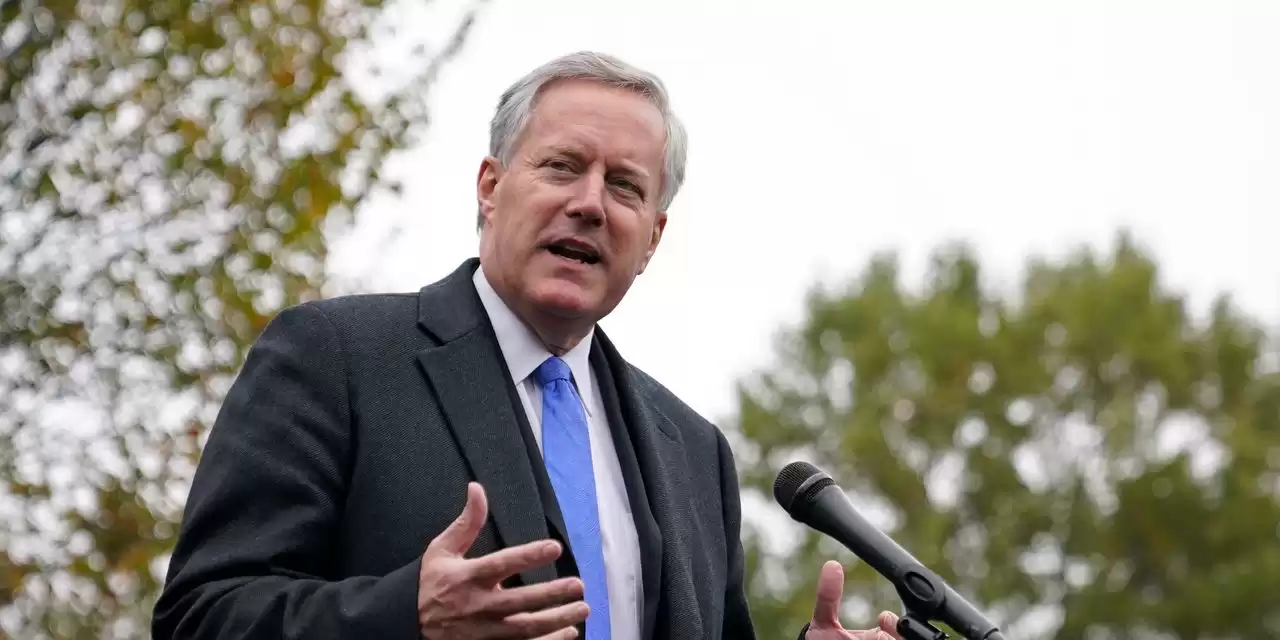Trump Chief of Staff Mark Meadows Denies Allegations in Georgia Indictment
Trump White House chief of staff Mark Meadows testified in court to deny allegations made against him in a Georgia indictment accusing him of participating in an illegal scheme to overturn the 2020 election. Meadows is seeking to fight the charges in federal court rather than in state court.
Mark Meadows, former White House chief of staff for the Trump administration, appeared in court on Monday to deny two allegations against him in a Georgia indictment. The indictment accuses Meadows, along with former President Donald Trump and 17 others, of participating in an illegal scheme to overturn the 2020 election. Meadows is seeking to have the charges heard in federal court rather than state court. In his testimony, Meadows denied asking White House personnel officer John McEntee to draft a memo to Vice President Mike Pence on how to delay the certification of the election. He also denied texting the Georgia secretary of state's office chief investigator, Frances Watson, as alleged in the indictment. Instead, he claimed the text was sent to Jordan Fuchs, the secretary of state's chief of staff.
The Fulton County District Attorney, Fani Willis, who brought the case using Georgia's racketeering law, argues that Meadows and the others participated in a conspiracy to illegally keep Trump in power after his loss to Democrat Joe Biden. Willis claims that Meadows' actions were political in nature and not part of his official duties. U.S. District Judge Steve Jones has yet to make a ruling on Meadows' request to move the trial.
Meadows' lawyers argue that the charges against him should be dismissed, as they believe his actions were performed as part of his official duties as Chief of Staff. They also want the case moved to federal court to halt any proceedings at the state level. During the hearing, Meadows' attorney questioned him about his duties as chief of staff and whether he had performed the acts alleged in the indictment as part of his job. Meadows claimed he had performed most of them as part of his official duty.
Willis' team argues that the actions in question were solely intended to keep Trump in office and were explicitly political, making them illegal under the Hatch Act, which restricts partisan political activity by federal employees. They believe the case should remain in Fulton County Superior Court. The allegations against Meadows include participating in meetings or communications with state lawmakers to advance the alleged illegal scheme, traveling to Atlanta's suburbs for a ballot envelope signature audit, arranging a phone call between Trump and a Georgia secretary of state investigator, and participating in a phone call between Trump and Georgia Secretary of State Brad Raffensperger, during which Trump suggested finding votes to help him win Georgia.
During the hearing, Meadows was asked why he was present in an Oval Office meeting with Michigan legislators where Trump made false claims about election fraud. Meadows claimed he was responsible for managing the president's time and ensuring the meeting stayed on track.
Meadows' lawyers argue that he is entitled to immunity under the Supremacy Clause of the U.S. Constitution, as his actions were part of his role as a federal official. They also argue that the discussion of the Hatch Act is irrelevant at this stage and should not be considered until after the case is moved to federal court.
At least four others charged in the indictment, including U.S. Justice Department official Jeffrey Clark, are also seeking to have the case moved to federal court. The other three individuals, former Georgia Republican Party chair David Shafer, Georgia state Sen. Shawn Still, and Cathy Latham, are among the 16 Georgia Republicans who signed a certificate falsely declaring Trump as the winner of the 2020 presidential election.











Comments on Trump Chief of Staff Mark Meadows Denies Allegations in Georgia Indictment